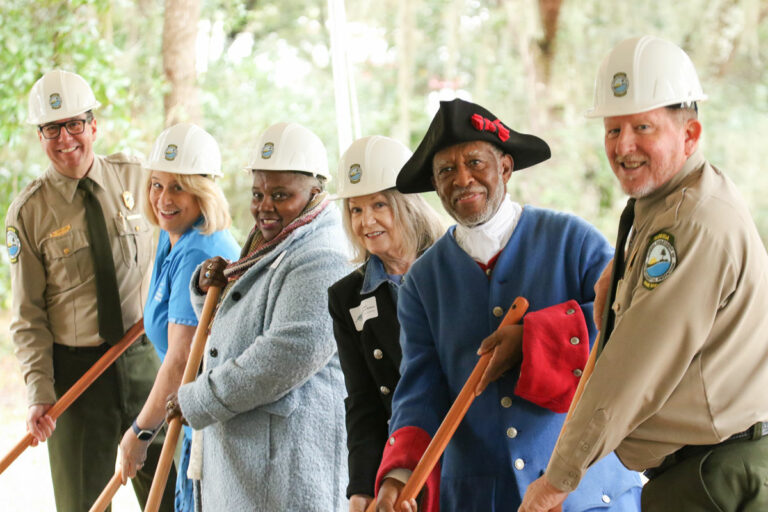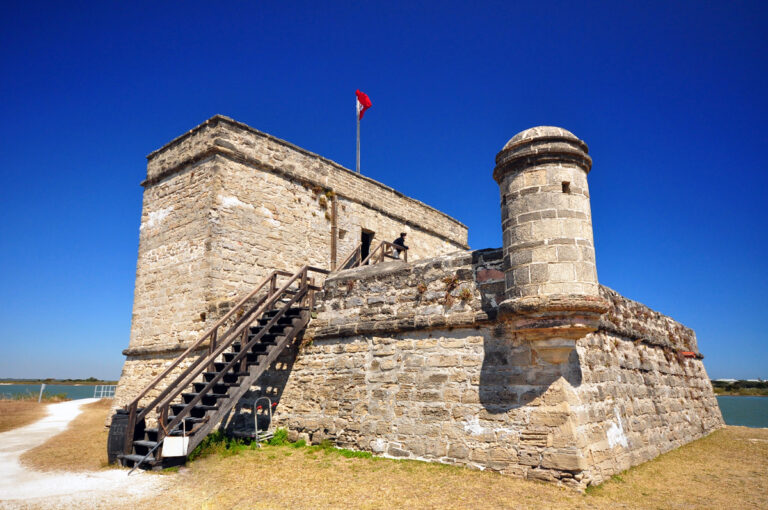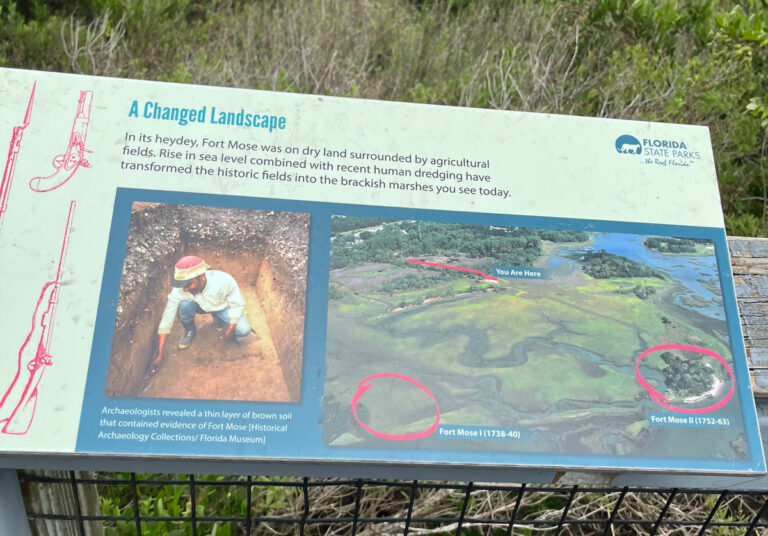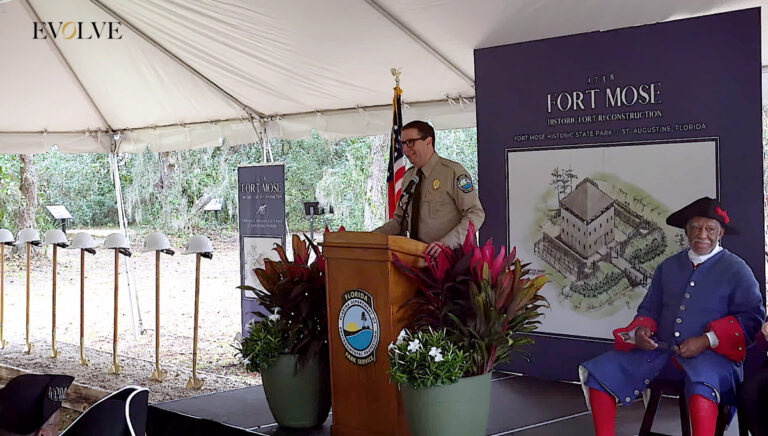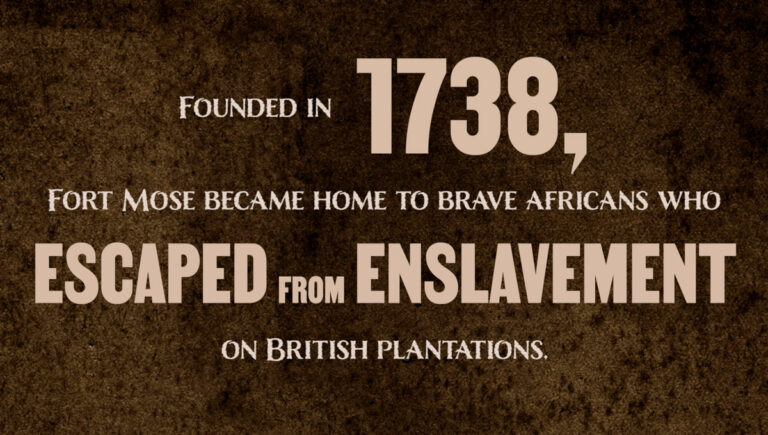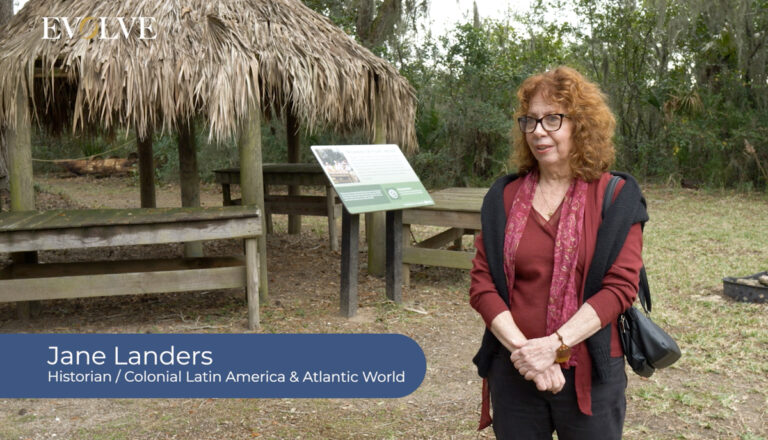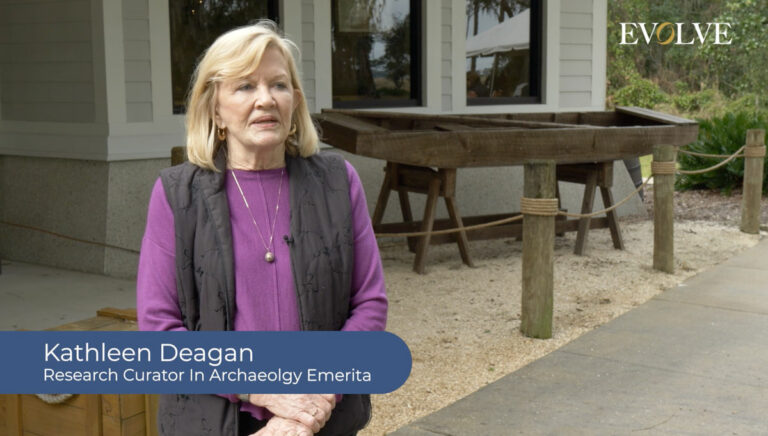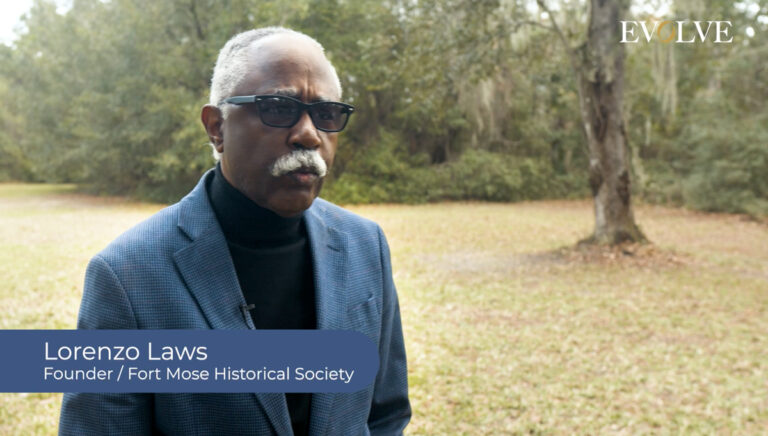History Unveiled
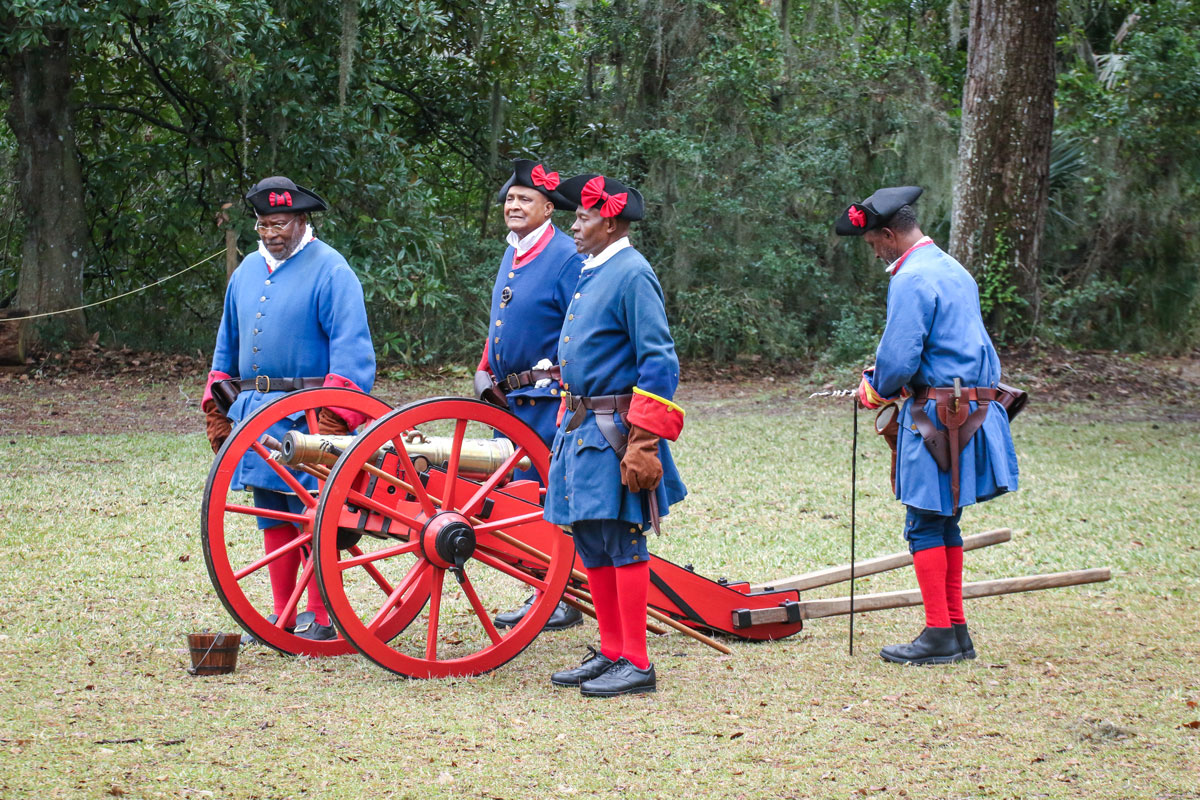
Fort Mose May Be St. Augustine’s Best-Kept Historic Secret
While the area may be best known as America’s oldest city, just as fascinating are some of the lesser-known historic sites — like Fort Mose.
The site — just two miles north of St. Augustine — is where the first legally sanctioned free African settlement was established by the Spanish governor, Gracia Real de Santa Teresa de Mose, as a haven for escaped slaves.
“St. Augustine is known for its rich history and amazing historical sites, but Fort Mose stands alone due to the nature of its story and the people who traveled and lived there,” says Julia Gill Woodward, chief executive officer of Florida State Parks Foundation. “It’s amazing to think that, more than a century before the American Civil War, an “underground railroad” originally traveled south to St. Augustine. We believe Fort Mose is America’s first site of freedom, and it’s right there in St. Augustine, just a short distance from the Castillo de San Marcos.”
Over 250 years ago, enslaved Africans escaped the Carolinas and other nearby states because they heard about Fort Mose and the freedoms that came with it. Once arrived, the slaves were baptized and contributed to the community in exchange for their freedom. The first arrivals came in 1687; by 1738, the group had reached more than 100 individuals.

“Fort Mose is unique,” says Charles A. Tingley, research historian at the St. Augustine Historical Society. “This was officially recognized by the government — the Spanish crown — that free Africans could have their own town and their own destinies.”
Because of its national significance in history, the 40-acre waterfront historic site has received several accolades and designations over the years as America’s Black colonial fortress of freedom. Getting to that point, though, took a lot of digging and unearthing as the original fort sunk into marshland.
Between 1986 and 1988, Dr. Kathleen Deagan of the Florida Museum of Natural History and her team initiated an archaeological and historical investigation at the site. What they uncovered led to a further understanding of how African Americans influenced Southern communities.
It was when Dr. Deagan’s team started doing research that the significance of the fort was uncovered and documented.
In 1995, the fort received designation as a National Historic Landmark. The designation requires six criteria and an ability to convey a site’s historical associations to be nominated and named as such.

Another prominent honor includes the fort’s National Underground Railroad Network to Freedom. This honor was pushed for by the state park and Fort Mose Historical Society to recognize that the Underground Railroad went further than most people ever knew about, Tingley says.
Presently, the fort is undergoing a reconstruction effort that started in 2012. Thanks to a $933,000 grant through the Florida Department of State’s Florida African-American Cultural & Historical Grant Opportunity and other generous community partners, the reconstruction project kicked off this year.
Slated for completion by late 2024, the site will include a new fort and reenactments from the era. Tingley believes the reconstruction of the 1738 fort will be exciting for the community but mainly for one particular age group.
“Reconstructions are exciting, especially for children,” says Tingley. “We hope that seeing a full-scale blockhouse of Fort Mose will excite somebody to delve further into the real history. If that makes one kid enthusiastic about history, that’s a good thing.”
The mystery of where the fort stands won’t be one visitors will have to ask for anymore, says Fort Mose Historic Society President Charles Ellis.
“We love hosting visitors at Fort Mose Historic State Park, but people are always asking, ‘So, where is the fort?’” stated Ellis in a recent press release. “Fort Mose has one of the most inspiring and fascinating stories in our nation’s history, and having this reconstruction on site will help us to share it in a fresh, comprehensive way. We can’t wait to see it finished.”
Fort Mose Awards & Designations
Here’s a look at the long list of honors and designations Fort Mose has as of 2024:
- Site of Memory, UNESCO Slave Route Project
- Designation: National Historic Landmark
- Designation: National Register for Historic Places
- National Underground Railroad Network to Freedom
- Gullah Geechee Cultural Heritage Corridor
- Florida African American History Trail
- Recipient, 2020 Herschel E. Shepard Award for Historic Preservation, St. Augustine Historical Society
- Citizen Support Organization of the Year for Historic Resources, FL State Parks

